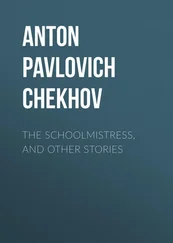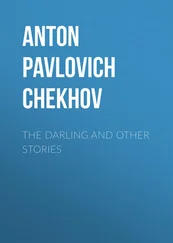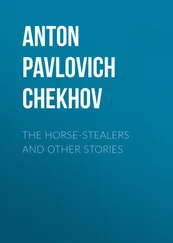Anton Chekhov - Love and Other Stories
Здесь есть возможность читать онлайн «Anton Chekhov - Love and Other Stories» — ознакомительный отрывок электронной книги совершенно бесплатно, а после прочтения отрывка купить полную версию. В некоторых случаях можно слушать аудио, скачать через торрент в формате fb2 и присутствует краткое содержание. Жанр: Старинная литература, Русская классическая проза, на английском языке. Описание произведения, (предисловие) а так же отзывы посетителей доступны на портале библиотеки ЛибКат.
- Название:Love and Other Stories
- Автор:
- Жанр:
- Год:неизвестен
- ISBN:нет данных
- Рейтинг книги:3 / 5. Голосов: 1
-
Избранное:Добавить в избранное
- Отзывы:
-
Ваша оценка:
- 60
- 1
- 2
- 3
- 4
- 5
Love and Other Stories: краткое содержание, описание и аннотация
Предлагаем к чтению аннотацию, описание, краткое содержание или предисловие (зависит от того, что написал сам автор книги «Love and Other Stories»). Если вы не нашли необходимую информацию о книге — напишите в комментариях, мы постараемся отыскать её.
Love and Other Stories — читать онлайн ознакомительный отрывок
Ниже представлен текст книги, разбитый по страницам. Система сохранения места последней прочитанной страницы, позволяет с удобством читать онлайн бесплатно книгу «Love and Other Stories», без необходимости каждый раз заново искать на чём Вы остановились. Поставьте закладку, и сможете в любой момент перейти на страницу, на которой закончили чтение.
Интервал:
Закладка:
*A character in Gogol's Dead Souls. – Translator's Note.
"I sat down on the seat, and, bending over the parapet, looked down. A path ran from the summer-house along the steep, almost overhanging cliff, between the lumps of clay and tussocks of burdock. Where it ended, far below on the sandy shore, low waves were languidly foaming and softly purring. The sea was as majestic, as infinite, and as forbidding as seven years before when I left the high school and went from my native town to the capital; in the distance there was a dark streak of smoke – a steamer was passing – and except for this hardly visible and motionless streak and the sea-swallows that flitted over the water, there was nothing to give life to the monotonous view of sea and sky. To right and left of the summer-house stretched uneven clay cliffs.
"You know that when a man in a melancholy mood is left tête-à-tête with the sea, or any landscape which seems to him grandiose, there is always, for some reason, mixed with melancholy, a conviction that he will live and die in obscurity, and he reflectively snatches up a pencil and hastens to write his name on the first thing that comes handy. And that, I suppose, is why all convenient solitary nooks like my summer-house are always scrawled over in pencil or carved with penknives. I remember as though it were to-day; looking at the parapet I read: 'Ivan Korolkov, May 16, 1876.' Beside Korolkov some local dreamer had scribbled freely, adding:
"'He stood on the desolate ocean's strand,
While his soul was filled with imaginings grand.'
And his handwriting was dreamy, limp like wet silk. An individual called Kross, probably an insignificant, little man, felt his unimportance so deeply that he gave full licence to his penknife and carved his name in deep letters an inch high. I took a pencil out of my pocket mechanically, and I too scribbled on one of the columns. All that is irrelevant, however.. You must forgive me – I don't know how to tell a story briefly.
"I was sad and a little bored. Boredom, the stillness, and the purring of the sea gradually brought me to the line of thought we have been discussing. At that period, towards the end of the 'seventies, it had begun to be fashionable with the public, and later, at the beginning of the 'eighties, it gradually passed from the general public into literature, science, and politics. I was no more than twenty-six at the time, but I knew perfectly well that life was aimless and had no meaning, that everything was a deception and an illusion, that in its essential nature and results a life of penal servitude in Sahalin was not in any way different from a life spent in Nice, that the difference between the brain of a Kant and the brain of a fly was of no real significance, that no one in this world is righteous or guilty, that everything was stuff and nonsense and damn it all! I lived as though I were doing a favour to some unseen power which compelled me to live, and to which I seemed to say: 'Look, I don't care a straw for life, but I am living!' I thought on one definite line, but in all sorts of keys, and in that respect I was like the subtle gourmand who could prepare a hundred appetising dishes from nothing but potatoes. There is no doubt that I was one-sided and even to some extent narrow, but I fancied at the time that my intellectual horizon had neither beginning nor end, and that my thought was as boundless as the sea. Well, as far as I can judge by myself, the philosophy of which we are speaking has something alluring, narcotic in its nature, like tobacco or morphia. It becomes a habit, a craving. You take advantage of every minute of solitude to gloat over thoughts of the aimlessness of life and the darkness of the grave. While I was sitting in the summer-house, Greek children with long noses were decorously walking about the avenues. I took advantage of the occasion and, looking at them, began reflecting in this style:
"'Why are these children born, and what are they living for? Is there any sort of meaning in their existence? They grow up, without themselves knowing what for; they will live in this God-forsaken, comfortless hole for no sort of reason, and then they will die..'
"And I actually felt vexed with those children because they were walking about decorously and talking with dignity, as though they did not hold their little colourless lives so cheap and knew what they were living for… I remember that far away at the end of an avenue three feminine figures came into sight. Three young ladies, one in a pink dress, two in white, were walking arm-in-arm, talking and laughing. Looking after them, I thought:
"'It wouldn't be bad to have an affair with some woman for a couple of days in this dull place.'
"I recalled by the way that it was three weeks since I had visited my Petersburg lady, and thought that a passing love affair would come in very appropriately for me just now. The young lady in white in the middle was rather younger and better looking than her companions, and judging by her manners and her laugh, she was a high-school girl in an upper form. I looked, not without impure thoughts, at her bust, and at the same time reflected about her: 'She will be trained in music and manners, she will be married to some Greek – God help us! – will lead a grey, stupid, comfortless life, will bring into the world a crowd of children without knowing why, and then will die. An absurd life!'
"I must say that as a rule I was a great hand at combining my lofty ideas with the lowest prose.
"Thoughts of the darkness of the grave did not prevent me from giving busts and legs their full due. Our dear Baron's exalted ideas do not prevent him from going on Saturdays to Vukolovka on amatory expeditions. To tell the honest truth, as far as I remember, my attitude to women was most insulting. Now, when I think of that high-school girl, I blush for my thoughts then, but at the time my conscience was perfectly untroubled. I, the son of honourable parents, a Christian, who had received a superior education, not naturally wicked or stupid, felt not the slightest uneasiness when I paid women Blutgeld , as the Germans call it, or when I followed high-school girls with insulting looks… The trouble is that youth makes its demands, and our philosophy has nothing in principle against those demands, whether they are good or whether they are loathsome. One who knows that life is aimless and death inevitable is not interested in the struggle against nature or the conception of sin: whether you struggle or whether you don't, you will die and rot just the same… Secondly, my friends, our philosophy instils even into very young people what is called reasonableness. The predominance of reason over the heart is simply overwhelming amongst us. Direct feeling, inspiration – everything is choked by petty analysis. Where there is reasonableness there is coldness, and cold people – it's no use to disguise it – know nothing of chastity. That virtue is only known to those who are warm, affectionate, and capable of love. Thirdly, our philosophy denies the significance of each individual personality. It's easy to see that if I deny the personality of some Natalya Stepanovna, it's absolutely nothing to me whether she is insulted or not. To-day one insults her dignity as a human being and pays her Blutgeld , and next day thinks no more of her.
"So I sat in the summer-house and watched the young ladies. Another woman's figure appeared in the avenue, with fair hair, her head uncovered and a white knitted shawl on her shoulders. She walked along the avenue, then came into the summer-house, and taking hold of the parapet, looked indifferently below and into the distance over the sea. As she came in she paid no attention to me, as though she did not notice me. I scrutinised her from foot to head (not from head to foot, as one scrutinises men) and found that she was young, not more than five-and-twenty, nice-looking, with a good figure, in all probability married and belonging to the class of respectable women. She was dressed as though she were at home, but fashionably and with taste, as ladies are, as a rule, in N.
Читать дальшеИнтервал:
Закладка:
Похожие книги на «Love and Other Stories»
Представляем Вашему вниманию похожие книги на «Love and Other Stories» списком для выбора. Мы отобрали схожую по названию и смыслу литературу в надежде предоставить читателям больше вариантов отыскать новые, интересные, ещё непрочитанные произведения.
Обсуждение, отзывы о книге «Love and Other Stories» и просто собственные мнения читателей. Оставьте ваши комментарии, напишите, что Вы думаете о произведении, его смысле или главных героях. Укажите что конкретно понравилось, а что нет, и почему Вы так считаете.












